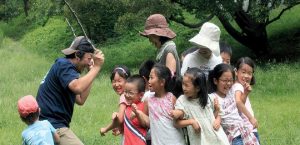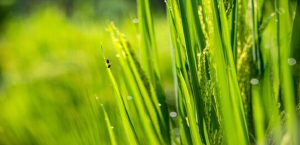Abstract:
Fungal pathogens cause enormous losses during fruit production and storage, especially in tropical and sub-tropical regions. Fungal pathogens infect leaves, fruits, and trunks of fruit trees. Fungal pathogens can colonize fruits and synthesize hazardous mycotoxins, posing an enormous threat for human health. However, only little information is available regarding the fungal pathogens that commonly occur in fruit trees and their interactions with endophytic fungi and hosts. My research group has deep experience in the identification of new diseases caused by pathogenic fungi in relevant Chinese fruit crops, such as papaya, kiwifruit, loquat, and pear, and in the development of biocontrol methods for their management. The management of fungal pathogens in papaya is commonly done by treating papaya fruit with the synthetic fungicide thiram. We found that papayas contain several tau-class GSTs, which can degrade thiram in papaya fruit via alkaline hydrolysis, observing the complete thiram degradation after 6-7 days. Residue S67 played a key influence in the degradation activity of tau-class GSTs. Recently, we identified aflatoxigenic Aspergillus flavus strains infecting kiwifruit in orchards from Shaanxi Province. We found that A. flavus spores contain dipicolinic acid (DPA), which is a metabolite never found in fungal spores before. During germination, A. flavus spores release DPA, which can inhibit the biosynthesis of p-hydroxybenzoic acid (pHBA), the main antifungal phenolic from kiwifruit. Our research is providing new insights to understand the biodiversity of fungal pathogens in fruit trees and revealing new genes and metabolites involved in the interactions between fungal pathogens and endophytic fungi and hosts.
Speaker: Dr. Pedro Laborda
Affiliation: Nantong University
Time: 4:30 PM, Tuesday, Apr. 8, 2025
Venue: Offline: The Conference Hall in Xishuangbanna Headquarter
Online: Tencent Meeting ID:230 435 669



